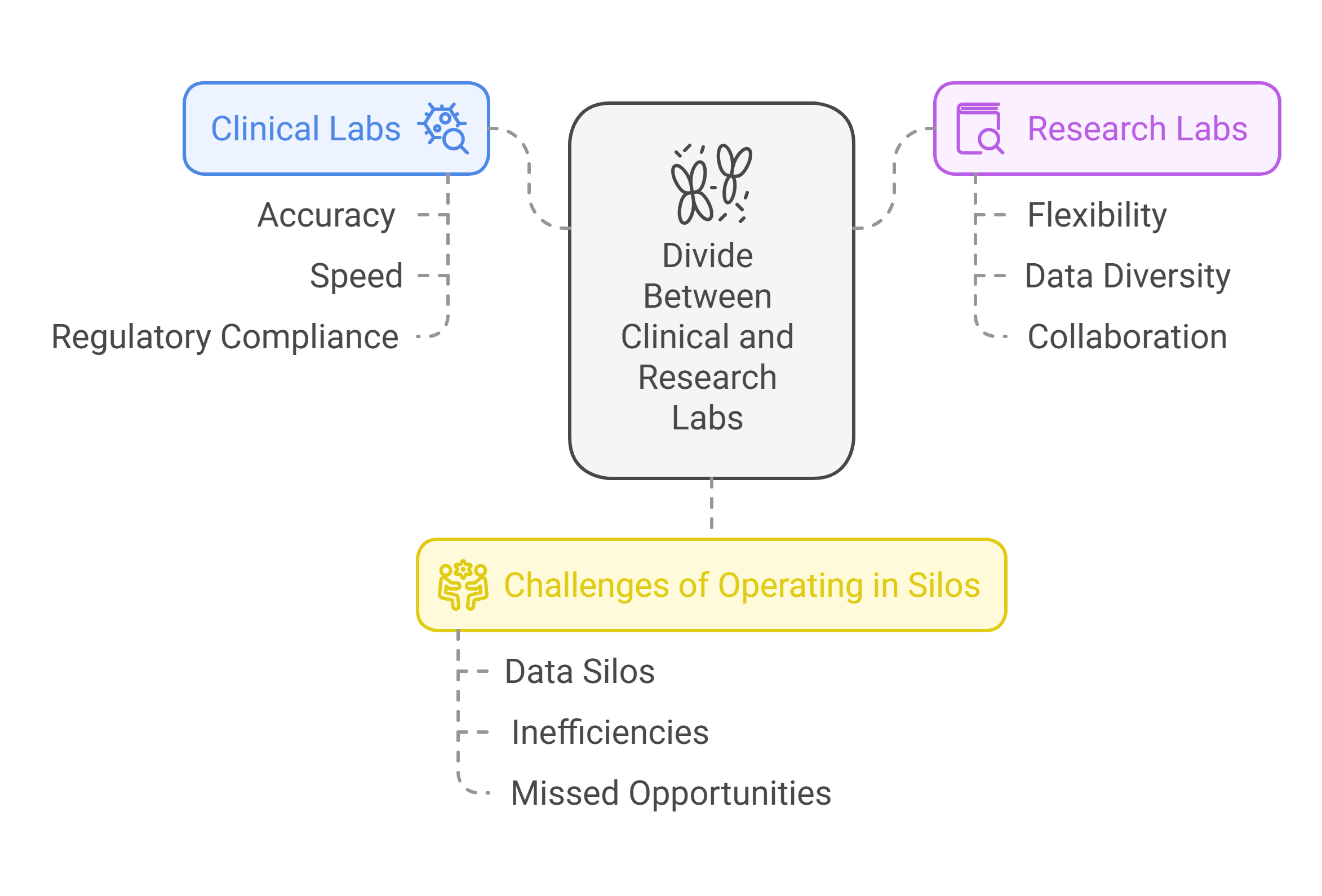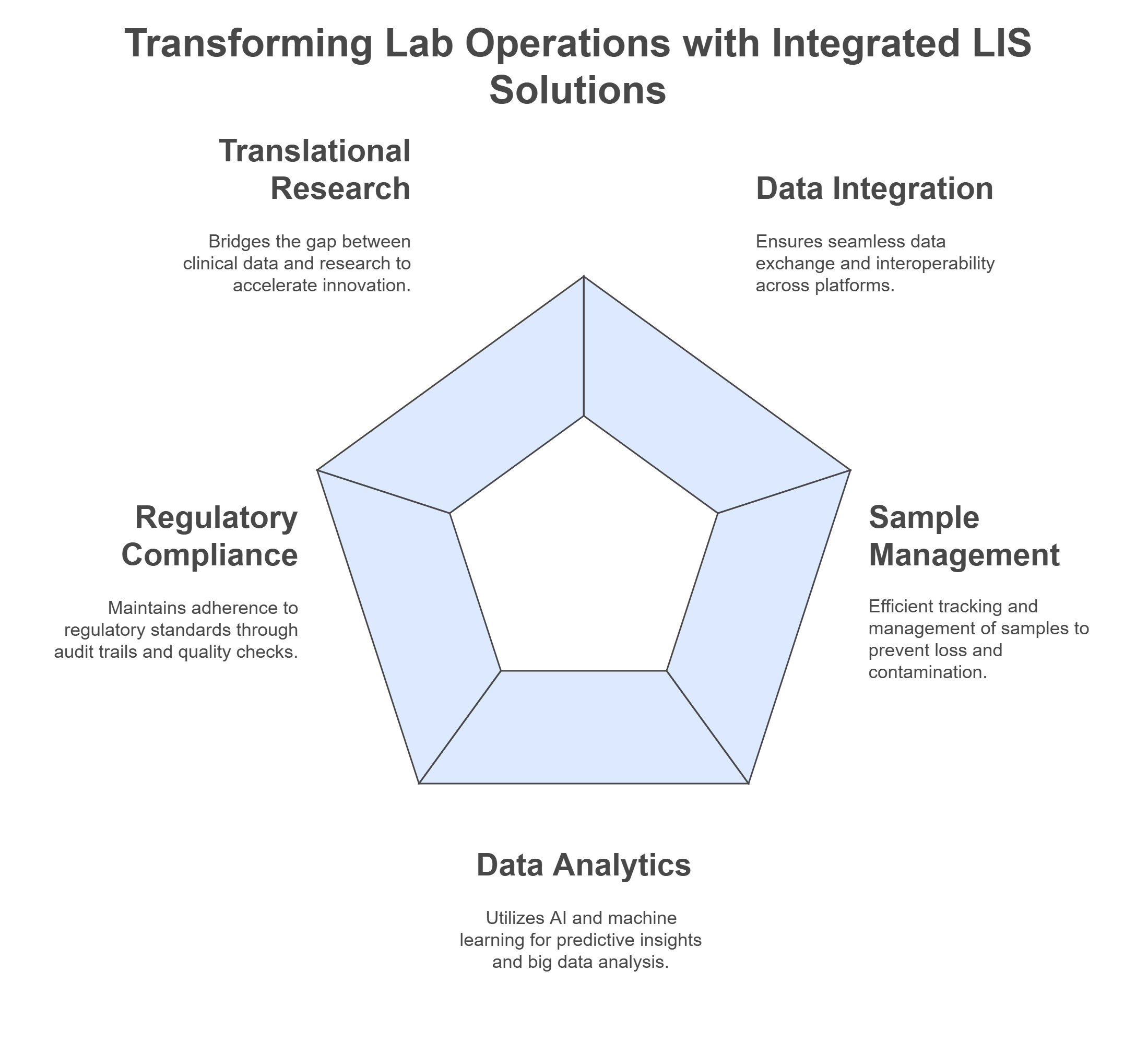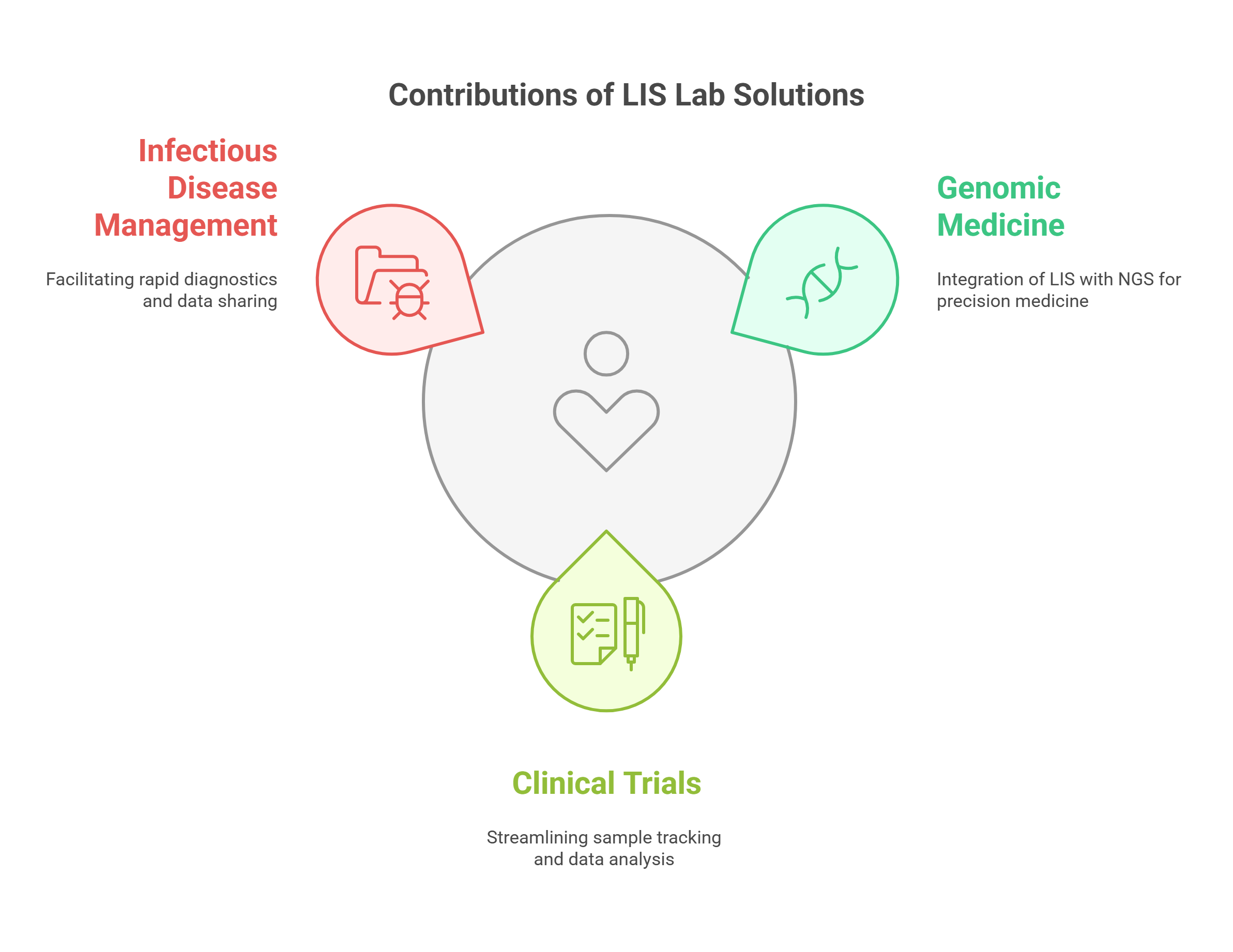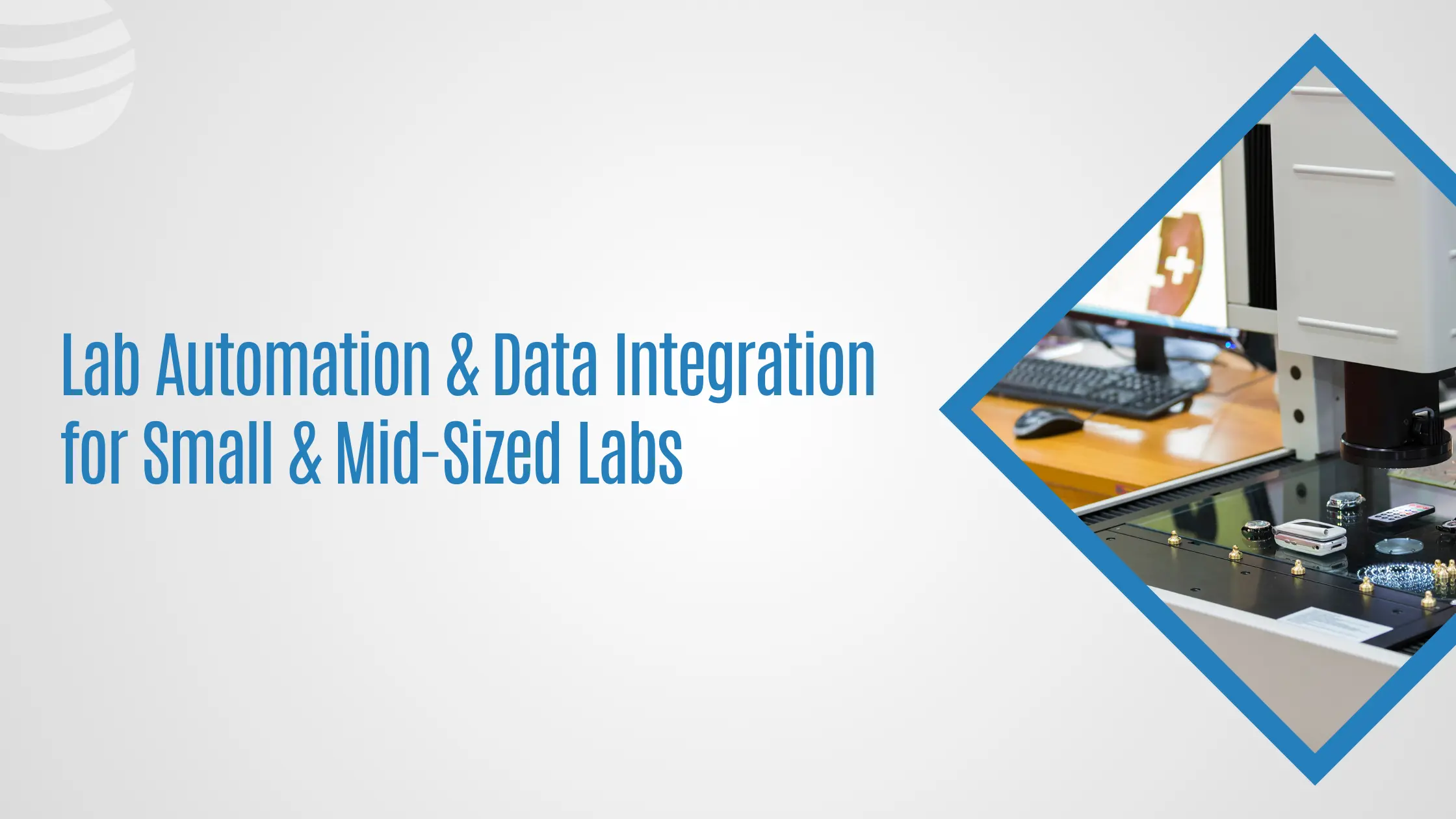

LIS Lab Solutions: Bridging the Gap Between
Clinical and Research Labs
Laboratories are the backbone of both clinical diagnostics and scientific research, but historically, these domains have operated in silos. Clinical labs focus on patient care, delivering precise and timely diagnostic results, while research labs prioritize innovation and discovery. The advent of Laboratory Information Systems (LIS) has revolutionized workflows in both sectors. LIS lab solutions now act as a bridge, enabling seamless integration between clinical and research environments.
In this article, we’ll explore how LIS lab solutions are transforming laboratory operations, highlight their benefits, and discuss their role in advancing healthcare and science.
What Are LIS Lab Solutions?
A Laboratory Information System (LIS) is specialized software designed to manage and streamline laboratory data and workflows. These systems handle key functions, including sample tracking, test result management, quality control, and reporting.
LIS lab solutions are tailored to meet the unique needs of clinical and research labs, ensuring compliance with industry standards and regulatory requirements while improving efficiency and accuracy.
Divide Between Clinical and Research Labs
Clinical Labs: A Focus on Precision and Timeliness
Clinical laboratories serve healthcare providers by conducting diagnostic tests to identify diseases, monitor patient health, and guide treatment decisions. Core priorities include:
- Accuracy: Ensuring reliable test results to support patient care.
- Speed: Delivering timely results for critical decision-making.
- Regulatory Compliance: Adhering to standards such as CLIA, CAP, and HIPAA.
Research Labs: Driving Innovation
Research laboratories focus on experimentation and discovery. Their objectives are often broader and more exploratory, involving the development of new therapies, diagnostics, or scientific insights. Key characteristics include:
- Flexibility: Adapting methodologies for experimental purposes.
- Data Diversity: Managing heterogeneous datasets, such as genomic, proteomic, and metabolomic data.
- Collaboration: Engaging in multidisciplinary research across institutions.
The Challenges of Operating in Silos
The separation between clinical and research labs creates obstacles such as:
- Data Silos: Lack of interoperability between systems hinders data sharing.
- Inefficiencies: Duplication of efforts in sample handling and data management.
- Missed Opportunities: Limited collaboration delays the translation of research findings into clinical applications.
How LIS Lab Solutions Bridge the Gap
LIS lab solutions provide a unified platform that integrates clinical and research workflows, addressing the challenges of siloed operations.
1. Data Integration and Interoperability
Modern LIS systems are equipped with tools for seamless data exchange across platforms. Key features include:
- HL7 and FHIR Standards: Supporting interoperability with electronic health records (EHRs) and other systems.
- Centralized Databases: Allowing clinical and research teams to access and analyze shared datasets.
- Cloud-Based Solutions: Enabling real-time collaboration and remote access.
2. Streamlined Sample Management
Effective sample tracking is crucial for both clinical and research labs. LIS lab solutions use barcoding, RFID systems, and automated workflows to:
- Minimize sample loss or contamination.
- Track the lifecycle of samples from collection to disposal.
- Ensure compliance with chain-of-custody requirements.
3. Enhanced Data Analytics
LIS systems incorporate advanced data analysis tools powered by AI and machine learning, enabling:
- Predictive Insights: Identifying trends and anomalies in test results.
- Big Data Analysis: Processing large datasets for biomarker discovery and clinical trials.
- Integration with NLP Tools: Extracting meaningful insights from unstructured data, such as medical literature or patient records.
4. Regulatory Compliance and Quality Control
Ensuring compliance with regulatory standards is a shared priority for clinical and research labs. LIS solutions provide:
- Audit Trails: Comprehensive logs of all actions for accountability.
- Automated Quality Checks: Reducing human error in test results.
- Customizable Workflows: Supporting adherence to diverse regulatory frameworks.
5. Facilitating Translational Research
Translational research aims to bridge the gap between bench science and bedside care. LIS lab solutions play a vital role by:
- Connecting clinical data with research findings to accelerate innovation.
- Supporting interdisciplinary collaborations by providing a common platform.
- Enabling the development of personalized medicine approaches.
Real-World Applications of LIS Lab Solutions
Genomic Medicine
The integration of LIS platforms with next-generation sequencing (NGS) technologies enables:
- Efficient processing of genomic data for clinical diagnostics and research.
- Discovery of biomarkers for targeted therapies.
- Support for precision medicine initiatives.
Clinical Trials
In clinical trials, LIS systems streamline:
- Sample tracking across multiple sites.
- Data collection and analysis for protocol adherence.
- Reporting for regulatory submissions.
Infectious Disease Management
During outbreaks, LIS solutions facilitate rapid diagnostics, data sharing, and epidemiological analysis, supporting public health efforts.
Benefits of LIS Lab Solutions
The adoption of LIS lab solutions delivers tangible benefits for clinical and research labs alike.
Improved Efficiency
Automating routine tasks, such as data entry and reporting, reduces the workload on lab personnel, allowing them to focus on higher-value activities.
Enhanced Accuracy
LIS systems minimize human errors through automated workflows, real-time data validation, and integrated quality control mechanisms.
Cost Savings
By reducing redundancies and improving resource allocation, LIS solutions help labs optimize their operational budgets.
Better Collaboration
A unified system fosters collaboration between clinical and research teams, ensuring faster knowledge transfer and innovation.
Scalability
Cloud-based LIS platforms offer scalability, accommodating the growing needs of labs as they expand their operations.
LIS lab solutions are transforming the way clinical and research labs operate. By providing a unified platform for data management, sample tracking, and workflow automation, these systems eliminate silos and foster collaboration. As the demand for precision medicine and translational research grows, the role of LIS solutions in bridging clinical and research domains will only become more critical.
Investing in the right LIS lab solution is not just a step toward operational efficiency—it’s a strategic move to stay at the forefront of healthcare and scientific innovation.





